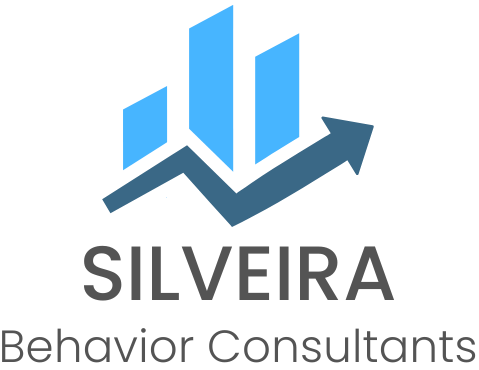Step into a career where science meets compassion. In 2025, becoming an Applied Behavior Consultant offers the chance to make a meaningful impact in homes, schools, and clinics. This guide explores how you can unlock your potential and help individuals with autism and developmental challenges thrive.
Why Applied Behavior Consultants Are in High Demand
With autism and other developmental diagnoses on the rise, the need for skilled professionals in ABA therapy and behavioral support has never been greater. As an Applied Behavior Consultant, you’ll play a key role in shaping brighter futures through evidence‑based strategies and personalized care.
Make a Lasting Impact in Homes, Schools, and Communities
Applied Behavior Consultants work across diverse settings—supporting children, families, and educators. Whether you're guiding behavior plans in classrooms or coaching parents at home, your work brings hope and measurable progress to those who need it most.
Personal Growth and Professional Fulfillment
This career path offers more than just a paycheck. You’ll experience personal growth, ongoing learning, and the satisfaction of making a lasting difference in your community. It’s a role that blends purpose with progress.
Start Your Journey Toward ABA Certification and Career Success
Ready to begin? This guide provides actionable steps, expert insights, and a forward‑looking view of what 2025 holds for aspiring behavior consultants. From training programs to certification paths, we’ll help you navigate your next move.

What Does an Applied Behavior Consultant Do?
A Profession Where Science Meets Compassion
Applied Behavior Consultants use ABA therapy techniques to support individuals with behavioral and developmental needs. Their work is grounded in data, empathy, and collaboration.
Core Responsibilities
- Conduct behavior assessments
- Develop and implement intervention plans
- Train caregivers and educators
- Monitor progress and adjust strategies
Defining Applied Behavior Consulting
Applied Behavior Consulting is rooted in the science of Applied Behavior Analysis (ABA)—a proven method for understanding and improving behavior.
An Applied Behavior Consultant brings these principles into everyday environments, such as homes, schools, and clinics, helping teams implement strategies that lead to lasting change.
How Consultants Differ from Therapists and Analysts
| Role | Main Focus | Setting |
|---|---|---|
| Consultant | System-wide planning, training, oversight | Schools, clinics, homes |
| Therapist | Direct intervention with clients | One-on-one, small group |
| Analyst | Data analysis, program design | Clinics, research |
Where applied behavior consultants work
Applied behavior consultants support clients across schools, clinics, homes, and community programs. They design school‑wide behavior support plans, train staff, and create consistent systems so every student can succeed. Many consultants serve in educational and pediatric settings, partnering with teachers, caregivers, and therapists to deliver practical, sustainable support.
- Example: A consultant creates a campus‑wide behavior framework, trains teachers and aides, and monitors progress to refine strategies.
- Learn more: ABA consultants in practice.
Core responsibilities and daily tasks
The day‑to‑day work is hands‑on and data‑driven, focused on understanding behavior and improving outcomes.
Assessment and aAnalysis
- Behavioral assessments: Identify why challenging behaviors occur.
- Functional analyses: Pinpoint triggers, functions, and reinforcement patterns.
- Goal setting: Translate findings into clear, measurable objectives.
Intervention Planning and Implementation
- Tailored plans: Develop and implement behavior intervention plans (BIPs).
- Evidence‑based strategies: Apply ABA methods across home, school, and community.
- Progress monitoring: Track data and adjust plans for continuous improvement.
Training and Collaboration
- Coach stakeholders: Train parents, teachers, and support staff for consistency.
- Teamwork: Collaborate with speech therapists, psychologists, and related providers.
- Documentation: Maintain clear records, analyze results, and report updates.
Essential skills and qualities
Success requires strong technical skills and people‑centered attributes.
Technical and Analytical Strengths
- Analytical thinking: Break down complex behavior patterns.
- Problem‑solving: Design practical solutions that fit real‑world settings.
- Data literacy: Collect, interpret, and act on data reliably.
Communication and Ethics
- Clear communication: Explain strategies in simple, actionable terms.
- Interpersonal skills: Build trust with families and teams.
- Ethical practice: Uphold high standards with cultural sensitivity.
Adaptability and Empathy
- Adapt to change: Navigate shifting routines and environments.
- Empathy: Handle complex family dynamics with care and respect.
- Sustainable support: Focus on strategies communities can maintain long‑term.
Impact on Clients and Communities
Applied behavior consultants help children and families achieve measurable gains in communication, social skills, and independence. Their work promotes inclusion in schools and supports sustainable progress at home.
- Families: Ongoing coaching builds confidence and consistency.
- Schools: Data‑guided systems reduce disruptions and improve engagement.
- Communities: Collaborative practices strengthen long‑term outcomes.
Step‑by‑step pathway to becoming an applied behavior consultant
Follow this roadmap to build expertise and make a meaningful impact.
Education and Foundational Training
- Earn a degree: Psychology, education, or related field.
- Study ABA principles: Assessment, intervention, ethics.
- Supervised experience: Learn under qualified mentorship.
Credentials and Continuing Education
- Pursue recognized credentials: Meet education and fieldwork requirements.
- Stay current: Maintain continuing education and ethical compliance.
Practical Experience and Specialization
- Work across settings: Home, school, clinic, and community programs.
- Specialize: Early intervention, school consultation, caregiver training, or telehealth.
- Build a portfolio: Document outcomes and training materials.
Professional Growth
- Refine coaching: Use simple language and visual supports.
- Strengthen data practices: Use reliable tools and consistent tracking.
- Network: Join professional groups and share best practices.

Educational Foundations and Certifications
A successful career as an Applied Behavior Consultant begins with the right educational foundation. Most professionals hold a bachelor’s degree in psychology, education, or a related field, but a master’s degree is strongly preferred and often required for advanced roles. Coursework typically covers behavior analysis principles, ethics, and intervention strategies to prepare consultants for complex behavioral needs.
BCBA Certification: A Key Milestone
Earning the Board Certified Behavior Analyst (BCBA) credential is a pivotal step. This certification requires specialized coursework, supervised fieldwork hours, and adherence to ethical standards. Top graduate programs in the U.S. emphasize hands‑on training, research, and applied practice to ensure consultants are fully prepared.
According to the Behavior Analyst Certification Board (BACB), 90% of professionals in this field hold at least a master’s degree. This strong academic background builds credibility and equips consultants to deliver effective, evidence‑based interventions.
Gaining Practical Experience
Real‑world experience is essential for becoming an effective Applied Behavior Consultant. Supervised fieldwork typically involves hundreds of hours across diverse settings such as schools, clinics, and home‑based programs.
Internships and Practicum Training
Internships and practicum placements allow students to apply theory to practice. For example, a practicum student may implement a behavior intervention plan (BIP) for a child in a school setting, learning to adapt strategies in real time.
Shadowing and Mentorship
Working alongside seasoned consultants helps new professionals observe best practices, refine their skills, and build confidence. Exposure to a wide range of clients strengthens problem‑solving abilities and prepares consultants to handle unique challenges.
Licensing, State Requirements, and Continuing Education (H1)
Each state has its own licensing requirements for ABA consultants, which may include exams, background checks, or additional supervised hours. Researching your state’s regulations early ensures compliance and smooth career progression.
Continuing Education Units (CEUs)
Ongoing professional development is critical. Earning CEUs keeps consultants current with best practices, new research, and ethical guidelines. Regular recertification ensures skills remain sharp and up to date.
For example, Illinois requires both state licensure and ongoing professional development. According to the Association of Professional Behavior Analysts (APBA), 80% of states now mandate specific ABA licensure. Prioritizing continuous learning helps consultants maintain credentials and deliver the highest standard of care.
Building a Professional Network and Reputation
Networking is vital for long‑term success as an Applied Behavior Consultant. Joining respected organizations such as the APBA or ABAI connects professionals with peers, mentors, and industry leaders.
Conferences and Mentorship
Attending conferences and workshops provides access to the latest research, tools, and career opportunities. Mentorship accelerates growth by offering guidance, collaboration, and case‑based learning.
Publishing research or presenting at conferences further enhances credibility. For example, attending the ABAI annual convention allows consultants to meet leaders in the field and gain new perspectives. Building a strong network enriches both career development and client outcomes.
Core Competencies and Best Practices for Success
Thriving as an Applied Behavior Consultant requires mastering a blend of technical expertise, collaboration, and ethical practice.
Essential Competencies
- Analytical thinking: Break down complex behavior patterns.
- Communication skills: Train families, educators, and staff effectively.
- Ethical standards: Maintain cultural sensitivity and professional integrity.
- Adaptability: Adjust strategies in dynamic environments.
Best Practices
- Use data‑driven decision making to guide interventions.
- Collaborate across multidisciplinary teams for holistic care.
- Prioritize empathy and trust‑building with families.
- Commit to lifelong learning and professional development.

Conducting Effective Assessments and Interventions
An Applied Behavior Consultant must be proficient in using evidence‑based assessment tools. This includes conducting Functional Behavior Assessments (FBA) to identify the root causes of challenging behaviors. Tailored intervention plans ensure strategies are both effective and meaningful for each client.
Data‑Driven Practices
Tracking progress with clear documentation allows consultants to make timely adjustments, leading to faster and more sustainable outcomes. For example, an FBA in a school setting can pinpoint triggers for disruptive behavior, resulting in a targeted support plan.
Ongoing Training
Consultants who invest in continuing education achieve stronger results. Studies show that data‑based interventions can accelerate progress by up to 30%, reinforcing the importance of strong assessment and intervention skills.
Collaboration and Multidisciplinary Teamwork
Applied Behavior Consultants thrive through collaboration. Working with teachers, therapists, physicians, and families ensures holistic care. Clear communication and shared goals are essential for success.
Building Consensus
Multidisciplinary IEP meetings align behavioral supports with academic and therapeutic plans. This collaboration improves treatment fidelity and ensures all stakeholders are working toward the same objectives.
Trusted Partnerships
By fostering open dialogue and respect, consultants become trusted partners in each client’s journey. Strong teamwork skills set the stage for client‑centered outcomes.
Cultural Competence and Ethical Practice
Effective consultants recognize the importance of cultural backgrounds and values in behavior planning. Adhering to the BACB ethical code and state regulations is essential.
Adapting Interventions
Tailoring strategies for bilingual families or diverse cultural contexts boosts participation. Research shows that culturally adapted programs increase engagement by 25%, highlighting the need for sensitivity and flexibility.
Ethical Standards
Ethical practice means maintaining transparency, respecting client autonomy, and prioritizing well‑being. These qualities protect clients while strengthening professional reputation.
Embracing Technology and Innovation
Technology is transforming the role of the Applied Behavior Consultant. Digital data collection tools and telehealth platforms streamline assessment and intervention delivery, making services more accessible.
Leveraging Digital Tools
Staying current with new software and virtual training resources is essential. During the COVID‑19 pandemic, many consultants successfully transitioned to telehealth ABA, expanding services to underserved communities.
Innovation as a Competitive Edge
Embracing innovation allows consultants to deliver higher‑quality care and adapt to evolving client needs. Those who leverage digital solutions stand out as leaders in the field.
Real‑World Applications and Career Opportunities
The career of an Applied Behavior Consultant is dynamic, offering opportunities to make a direct impact across multiple environments. With growing awareness and support for individuals with autism and developmental disabilities, demand for skilled consultants is at an all‑time high.

Career Paths
- Schools and clinics: Implement ABA therapy programs and train staff
- Community programs: Support inclusion and independence
- Private practice: Offer tailored consulting services for families
- Telehealth: Expand access to underserved regions
Professional Growth
Consultants can expect competitive salaries, diverse career paths, and opportunities to specialize in areas such as early intervention, school consultation, or caregiver training.
Diverse Work Settings and Populations
A career as an Applied Behavior Consultant offers opportunities across a wide range of environments. Many consultants work in public and private schools, providing behavioral support to students with special needs. Others are based in clinics or hospitals, collaborating with multidisciplinary teams to deliver comprehensive care.
In‑Home and Community Services
Consultants also provide services in homes and community programs, working directly with families and caregivers in natural environments. For example, an Applied Behavior Consultant may assist a young adult transitioning into community living, ensuring adaptive skills are developed for independence.
Common Work Settings
- Schools (public/private, special education)
- Clinics and hospitals
- Home and community programs
According to the Behavior Analyst Certification Board (BACB), 60% of consultants work across multiple settings. This flexibility allows professionals to expand their expertise and connect with diverse populations, from young children to adults.
Career Paths and Advancement Opportunities
The field of Applied Behavior Consulting offers clear pathways for growth and specialization. Entry‑level roles often focus on direct client care or program implementation. With experience and advanced credentials, consultants can move into leadership positions such as clinical director or program supervisor.
Expanding Career Options
Professionals may also explore opportunities in research, advocacy, or policy development, shaping the future of ABA practices. Many consultants transition into management roles, overseeing teams or entire programs.
Possible Career Paths
- Entry‑level consultant
- Senior consultant or supervisor
- Program manager or clinical director
- Researcher or policy advocate
Continuing education and specialization not only boost career advancement but also ensure consultants remain current in this evolving field.
Salary Expectations and Job Market Trends
Salary prospects for Applied Behavior Consultants are strong and continue to grow. In the United States, the average annual salary ranges from $65,000 to $90,000, depending on location, credentials, and years of experience.
Regional Differences
Urban areas typically offer higher salaries due to increased demand, while rural regions may present unique opportunities and challenges.
Job Market Growth
The U.S. Bureau of Labor Statistics projects a 22% increase in job openings by 2025, making ABA one of the fastest‑growing health professions. Reports from the U.S. Applied Behavior Analysis Market Growth Outlook 2032 highlight robust expansion, driven by the rising prevalence of autism and the nationwide adoption of ABA services.
| Factor | Impact on Salary/Job Growth |
| Location | Higher in cities, steady in rural |
| Credentials | Advanced degrees boost earnings |
| Experience | Senior roles earn more |
| Market Growth | 22% increase by 2025 |
These trends make now an excellent time to pursue a career as an applied behavior consultant.
Challenges and Solutions in Practice
Working as an Applied Behavior Consultant comes with unique challenges, but effective strategies can help overcome them. Heavy caseloads, navigating insurance or funding limitations, and managing client or family resistance are common hurdles in the profession.
Common Challenges
- Caseload management
- Funding and insurance navigation
- Family and client engagement
Effective Solutions
Self‑care, supervision, and peer support are vital for resilience. Regular consultation with colleagues, setting boundaries, and applying evidence‑based practices help prevent burnout. For long‑term success, adaptability and ongoing learning ensure consultants continue making a positive impact while growing professionally.
The Future of Applied Behavior Consulting: Trends and Innovations for 2025
The field of Applied Behavior Consulting is rapidly evolving, with 2025 bringing new challenges and opportunities. Staying ahead of these trends is crucial for professional growth and positive client outcomes.
Evolving Best Practices and Research Developments
Best practices are shifting toward personalization and client empowerment. New research emphasizes trauma‑informed ABA, person‑centered planning, and social validity, ensuring interventions align with client values.
- Programs increasingly include self‑advocacy training, giving clients a stronger voice.
- Statistics show 40% of ABA providers now use client‑led goal setting, reflecting the profession’s focus on autonomy and choice.
Consultants who stay updated with current literature and professional networks are better equipped to deliver innovative, effective care.
Expanding Access and Equity in Services
Access and equity remain central themes in 2025. Telehealth ABA services have expanded care to rural and underserved communities, while digital platforms simplify data collection and parent training.
- Partnerships with schools, healthcare systems, and community centers broaden reach.
- Grant‑funded projects and public‑private collaborations make ABA more accessible for low‑income populations.
Consultants who prioritize cultural competence and flexible service delivery help bridge gaps, ensuring all clients receive individualized, high‑quality support.
Policy, Advocacy, and the Role of Consultants
Applied Behavior Consultants are increasingly recognized as leaders in policy and advocacy. Navigating evolving insurance laws, licensure requirements, and funding mechanisms is now a core responsibility.
- Consultants advocate for client rights and contribute to shaping state and national regulations.
- Policy changes since 2020 have boosted ABA access by 30%, expanding opportunities for professionals.
By staying informed and building advocacy skills, consultants drive systemic improvements and ensure client voices are heard.
Preparing for the Next Generation of ABA Professionals
Investing in the next generation is key to sustaining the field. Mentorship programs, ongoing training, and a focus on diversity, equity, and inclusion are now integral to workforce development.
Workforce Development Strategies
- Peer mentorship and structured onboarding build confidence in new consultants.
- Digital tools and innovative teaching methods keep professionals relevant in a changing landscape.
The future belongs to consultants who are adaptable, lifelong learners, and committed to continuous improvement. By embracing these trends, professionals can shape both their careers and the future of ABA.
If you’re inspired to make a meaningful impact in the lives of individuals with autism and developmental disabilities, this guide provides the roadmap to begin your journey as an Applied Behavior Consultant. At Silveira Behavior Consultants, we support your growth with real‑world experience, expert mentorship, and evidence‑based care. Whether you’re exploring a new career or ready to advance, you don’t have to navigate it alone. Inquire About Services today and turn your passion into purpose.





